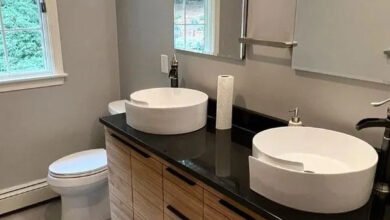
Selecting the appropriate builder is one of the most important decisions you’ll make during the exciting and anticipated process of building a dream house, which for many people is a major milestone. The right builder can transform your vision into reality, ensuring that every detail aligns with your expectations. However, with countless builders in the market, how do you choose the right one? This comprehensive guide will help you in making a well-informed choice.
1. Define Your Needs and Preferences
It’s critical to know exactly what you want before searching for a builder. This will not only help you find the right builder but also streamline the entire construction process. Consider the following:
- Type of Home: Are you looking for a luxury apartment, a budget-friendly flat, a villa, or a custom-built house? Understanding the kind of home you want will help you narrow down builders who specialize in that type of construction.
- Design Preferences: Do you prefer modern, traditional, or contemporary designs? Consider the architectural design that best suits your tastes and way of life. Collect pictures, create a vision board, or save online references to communicate your preferences clearly to potential builders.
- Size and Layout: Determine the size of the home you need, including the number of bedrooms, bathrooms, and additional spaces like a home office, gym, or guest rooms. Consider both your current and future needs, such as expanding your family or hosting guests, to ensure the layout accommodates your lifestyle.
- Features and Amenities: Make a list of must-have features, such as a spacious kitchen, large windows for natural light, a garden, a swimming pool, or smart home technology. Consider energy-efficient appliances and eco-friendly building materials if sustainability is a priority.
- Budget: What is your budget for the entire project, including construction, interior design, and landscaping? Setting a realistic budget early on will help you find builders who can deliver within your financial limits without compromising on quality.
- Location: Where do you want your dream home to be situated? Think about proximity to work, schools, healthcare facilities, shopping centres, and recreational areas. Consider the neighbourhood’s safety, future development plans, and the resale value of properties in the area.
- Timeline: How soon do you want to move into your new home? Understanding your timeline will help you choose a builder who can commit to completing the project within your desired timeframe.
2. Research and Shortlist Potential Builders
Start by researching potential builders in your desired area. You can use various resources:
- Online Searches: Start by searching online for builders in your desired location. Look for builders with a strong online presence, professional websites, and active social media profiles. These platforms often showcase their completed projects, services, and customer reviews. Pay attention to builders who specialize in the type of home you want, whether it’s luxury apartments, budget-friendly flats, villas, or custom-built houses.
- Referrals: Word of mouth is one of the most reliable ways to find a good builder. Ask friends, family, neighbours, or colleagues who have recently built homes for recommendations. Personal experiences can offer insightful information on the dependability, caliber of the builder’s work, and level of customer service.
- Real Estate Agents: Real estate agents often have a good understanding of the local construction market and can recommend reputable builders. They may have insights into which builders are known for quality construction and timely delivery, as well as those who have had issues in the past.
- Local Home Shows and Exhibitions: Attend home shows, exhibitions, and open houses in your area. These events are great opportunities to meet builders, see their work firsthand, and gather information about their style, quality, and pricing. You can also get a sense of the latest trends and innovations in homebuilding.
- Industry Associations: Check if the builder is a member of recognized industry associations, such as the Builders Association of India (BAI) or the Confederation of Real Estate Developers’ Associations of India (CREDAI). Membership in such organizations often indicates a commitment to industry standards and best practices.
- Real Estate Forums and Online Reviews: Browse through online forums and community groups focused on real estate and home building. These platforms can provide unbiased reviews and feedback from homeowners who have worked with various builders. Look for recurring themes in reviews, such as consistently positive feedback on quality or repeated complaints about delays and poor communication.
- Visit Construction Sites: If possible, visit some of the builder’s ongoing construction sites. This allows you to see their work in progress, assess the quality of materials being used, and observe the overall organization and safety standards on the site. It’s also a good way to gauge how the builder manages timelines and the construction process.
- Interview Multiple Builders: Once you have a list of potential builders, schedule interviews or meetings with each one. Prepare a list of questions to ask about their experience, past projects, design philosophy, and approach to problem-solving. Pay attention to how well they listen to your needs and whether they provide clear and detailed answers.
- Check References: Ask each builder for references from past clients. Contact these clients to get firsthand feedback about their experience with the builder. Inquire about the quality of work, adherence to timelines, communication, and any issues faced during or after the construction process.
Create a shortlist of builders that match your preferences and have a good reputation.
3. Check Credentials and Experience
Once you have a list of potential builders, it’s time to dig deeper:
- Experience: One of the first things to consider is the builder’s experience. What is the duration of the builder’s business? Builders with many years of experience are more likely to have a thorough understanding of construction standards, industry best practices, and the ability to handle unexpected challenges that may arise during the construction process. An experienced builder has likely worked through various market conditions and built a wide range of projects, equipping them with the knowledge to deliver high-quality results.
- Portfolio: Reviewing a builder’s portfolio is essential to gauge the quality and consistency of their work. A strong portfolio will showcase completed projects that reflect a range of styles, sizes, and complexities. Look for consistency in quality, attention to detail, and design aesthetics that align with your preferences. Visiting some of these completed projects in person can provide a firsthand look at the builder’s craftsmanship and the overall finish. A diverse portfolio indicates that the builder has the flexibility to adapt to different styles and requirements, which is beneficial if you have specific design preferences.
- Licenses and Certifications: Ensure that the builder holds all the necessary licenses to operate legally in your area. Licenses confirm that the builder is compliant with local building codes and regulations. Additionally, certifications from reputable industry bodies, such as the Builders Association of India (BAI) or the Confederation of Real Estate Developers’ Associations of India (CREDAI), can be an indicator of professionalism and a commitment to maintaining high standards of quality. These certifications often require builders to meet stringent criteria related to ethical practices, construction quality, and ongoing education.
4. Evaluate the Quality of Work
The quality of construction is paramount when building your dream home. Here’s how to assess it:
- Site Visits: One of the most effective ways to assess a builder’s work is by visiting their completed projects and ongoing construction sites. During these visits, take a close look at the quality of materials being used, such as bricks, tiles, and fixtures. Inspect the finishes, including paintwork, woodwork, and flooring, to see if they meet your expectations. Pay attention to the overall craftsmanship—are the lines straight, edges smooth, and installations seamless? Visiting an active construction site can also give you insights into how the builder manages their projects, including site organization, safety standards, and cleanliness. A well-managed site often indicates professionalism and attention to detail.
- Talk to Past Clients: Speaking directly with homeowners who have previously worked with the builder can provide valuable insights. If possible, ask the builder for a list of references and contact some of their past clients. Inquire about their overall experience, including the quality of work, communication, and reliability of the builder. Ask specific questions about any issues they faced during or after the construction process and how the builder handled these problems. Learning from the experiences of others can help you gauge the builder’s ability to deliver on promises and handle challenges effectively.
- Warranty and Maintenance: A reliable builder should offer a warranty on their construction work. This warranty typically covers structural aspects of the home, such as foundations, walls, and roofs, for a certain period. Find out the specific terms and duration of the builder’s promise.
- Additionally, ask about their policy on post-construction maintenance. Will they be available to fix any issues that arise after you move in? Understanding the builder’s approach to warranties and maintenance will give you peace of mind, knowing that any problems will be addressed promptly and professionally.
5. Transparency and Communication
A reliable builder will maintain transparency throughout the construction process. Consider the following:
- Clear Contract: A reputable builder should provide a detailed contract that outlines all aspects of the construction project. This contract should include the scope of work, materials to be used, project timelines, and payment schedules. It should also cover specific design and construction specifications, including details about the quality and brand of materials, finishes, and fixtures. Make sure the contract includes clauses for handling changes or modifications that may arise during the construction process. A comprehensive contract serves as a legal document that protects both you and the builder, ensuring that all parties are on the same page and minimizing the risk of disputes.
- Open Communication: For a construction project to be successful, effective communication is essential. Choose a builder who values open communication and is responsive to your queries and concerns. A good builder will keep you regularly updated on the progress of the construction, including milestones achieved and any delays that may occur. They should be transparent about the status of the project, potential challenges, and the steps they are taking to address them. This transparency builds trust and allows you to feel more involved in the process. Additionally, the builder should be open to discussions about any changes you wish to make, providing professional advice on the feasibility and impact of those changes.
- Problem Solving: Construction projects often encounter unforeseen challenges or delays. It’s important to choose a builder who demonstrates flexibility and a proactive approach to problem-solving. During your interactions, assess how the builder handles issues or setbacks. Do they take responsibility and offer practical solutions, or do they avoid addressing the problems? A builder with strong problem-solving skills will manage challenges efficiently, ensuring that the project continues to move forward without compromising on quality or exceeding the budget. Look for signs of a positive attitude, resourcefulness, and a commitment to finding solutions that align with your needs.
6. Compare Costs and Payment Plans
Cost is a significant factor when choosing a builder. While it might be tempting to go with the lowest bid, it’s important to understand what you’re getting for the price:
- Detailed Quotes: One of the first steps in evaluating a builder’s financial transparency is to request detailed quotes from the shortlisted builders. A comprehensive quote should break down all costs involved in the construction, including labour, materials, permits, and any additional services like landscaping or interior design. Ensure that the quote covers every aspect of the project, leaving no room for hidden costs. This includes costs for foundation work, electrical and plumbing installations, flooring, paint, and finishes. If you notice vague or ambiguous items, seek clarification to avoid unexpected expenses down the line. Comparing detailed quotes from multiple builders will help you assess their pricing structure and choose the one that offers a fair deal without compromising on quality.
- Payment Schedule: Discuss the payment schedule with each builder and ensure it aligns with construction milestones. A transparent payment schedule typically includes an initial deposit, followed by instalments tied to specific stages of the construction, such as foundation completion, framing, and finishing. Avoid builders who demand a large upfront payment, as this can be risky and may leave you with little leverage if issues arise. Instead, opt for a builder who is willing to accept payments in stages, based on work completed. This approach not only protects your investment but also motivates the builder to stay on track with the project timeline.
- Value for Money: While it’s important to stick to your budget, the lowest price is not always the best choice. Seek out builders who provide a decent mix of quality and price. Sometimes, paying a little more can result in better quality materials, superior craftsmanship, and fewer issues during and after construction. Evaluate the quality of materials specified in the quote and consider the builder’s reputation for reliability and customer satisfaction. Builders who use high-quality materials and skilled labour may cost more upfront but can save you money in the long run by reducing maintenance and repair costs. It’s worth investing in a builder who is committed to delivering a high-quality home that meets your expectations and stands the test of time.
7. Review Legal Compliance
Ensure that the builder adheres to all legal requirements and has the necessary approvals:
- Land Titles and Permissions: Verify that the builder has clear land titles and necessary permissions for construction.
- Compliance with Regulations: Ensure the construction adheres to local building codes, safety standards, and environmental regulations.
8. Trust Your Instincts
Lastly, trust your instincts. If a builder seems too good to be true or if you have any doubts about their honesty or capability, it’s better to walk away. Building a home is a significant investment, and you should feel confident in the builder’s ability to deliver your dream home.
Conclusion
Choosing the right builder for your dream home, whether you’re looking for flats and apartments in Kochi or elsewhere, requires careful consideration and thorough research. By defining your needs, checking credentials, assessing quality, ensuring transparency, and comparing costs, you can make an informed decision. Remember, the right builder is not just about construction; it’s about turning your vision into reality with professionalism, integrity, and quality. Your dream home deserves nothing less.


